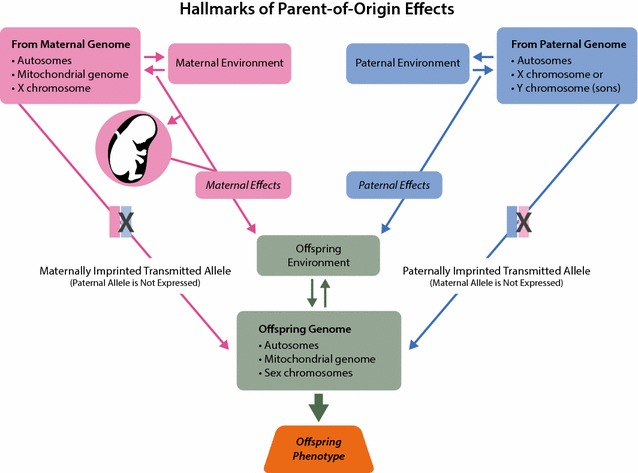From Zayats et al. 2015 Behav. Brain Funct. 11, 33
A gene variant may contribute differently to a change in phenotype, or to the development of a disease, depending on if it is inherited from the mother or the father. Such a difference between maternal and paternal inheritance is referred to as parent-of-origin effect and this effect may be important for understanding aspects of ADHD and related behavioral phenotypes.
Genome-wide association (GWA) studies have shown that many different genetic variants cumulatively contribute to the risk of psychiatric disorders. It has also been demonstrated that various parent-of-origin effects (POE) may differentially influence the risk of these disorders. Together, these observations have provided important new possibilities to uncover the genetic underpinnings of such complex phenotypes. As POE so far have received little attention in neuropsychiatric disorders, there is still much progress to be made. In a recent review article on the subject, we focus on the new and emerging role of POE in attention-deficit hyperactivity disorder (ADHD). We review the current evidence that POE play an imperative role in vulnerability to ADHD and related disorders. We also discuss how POE can be assessed using statistical genetics tools, expanding the resources of modern psychiatric genetics. We propose that better comprehension and inspection of POE may offer new insight into the molecular basis of ADHD and related phenotypes, as well as the potential for preventive and therapeutic interventions.
By Tetyana Zayats (researcher in the KGJN), edited by Rune Kleppe
